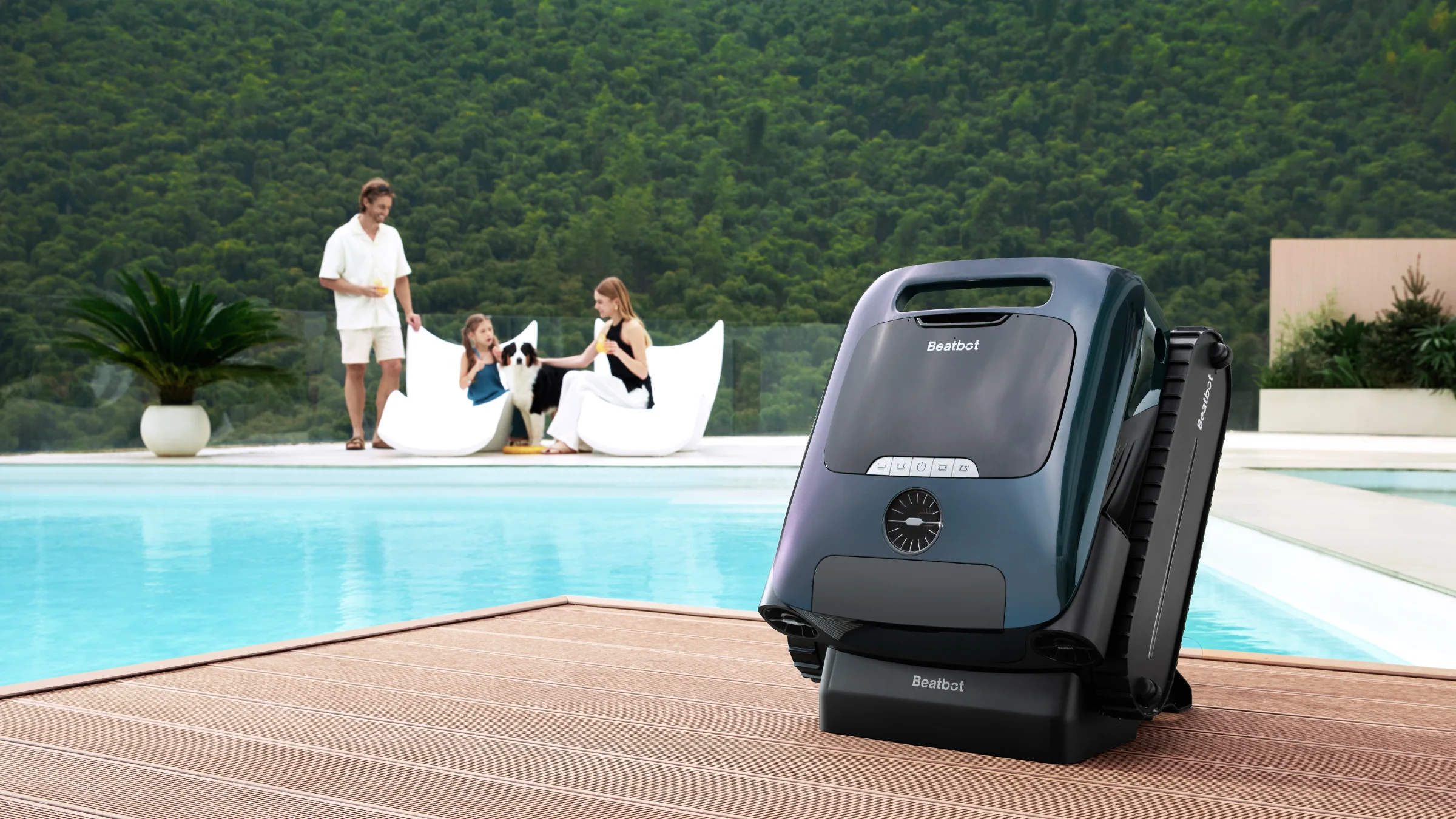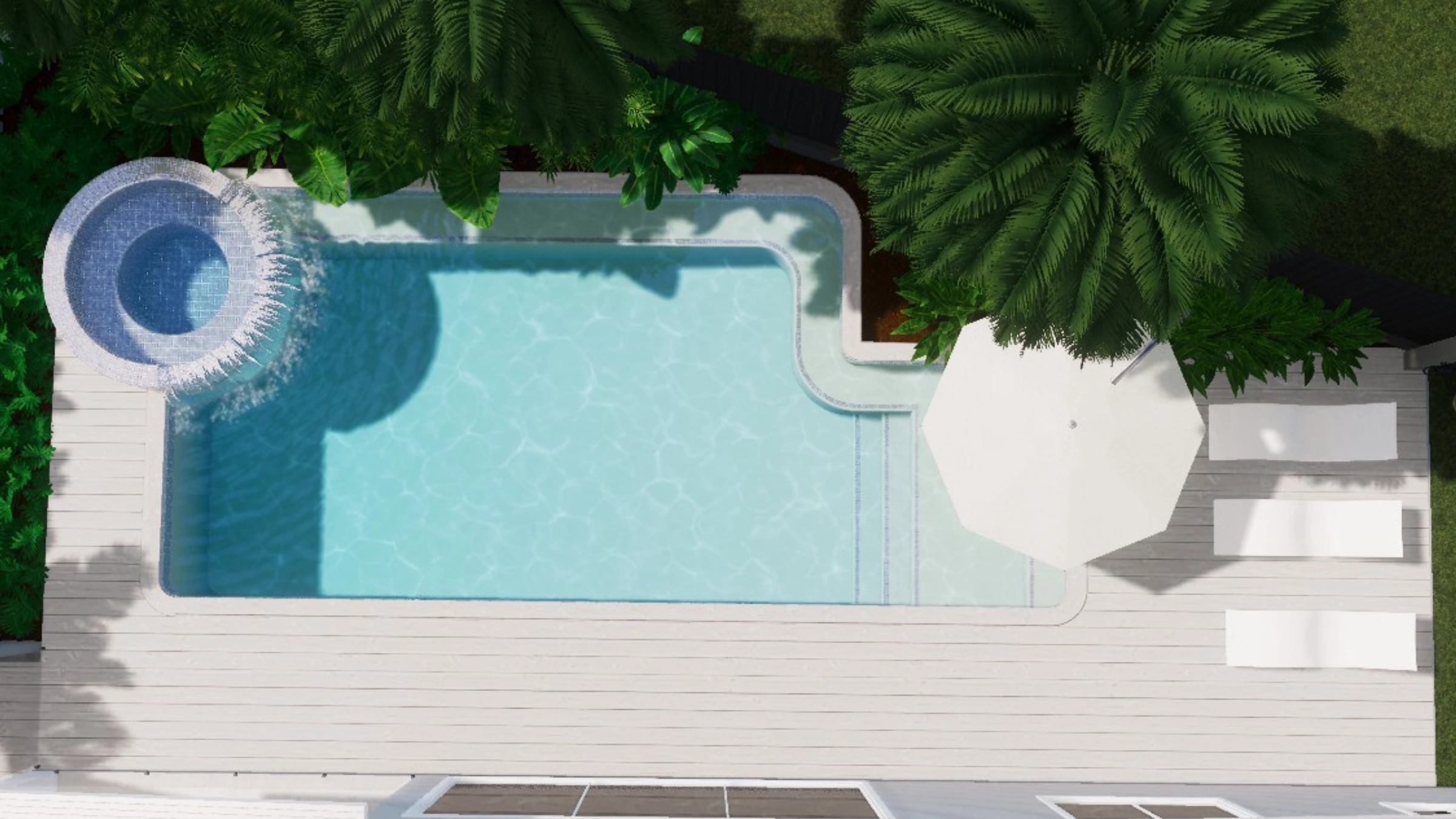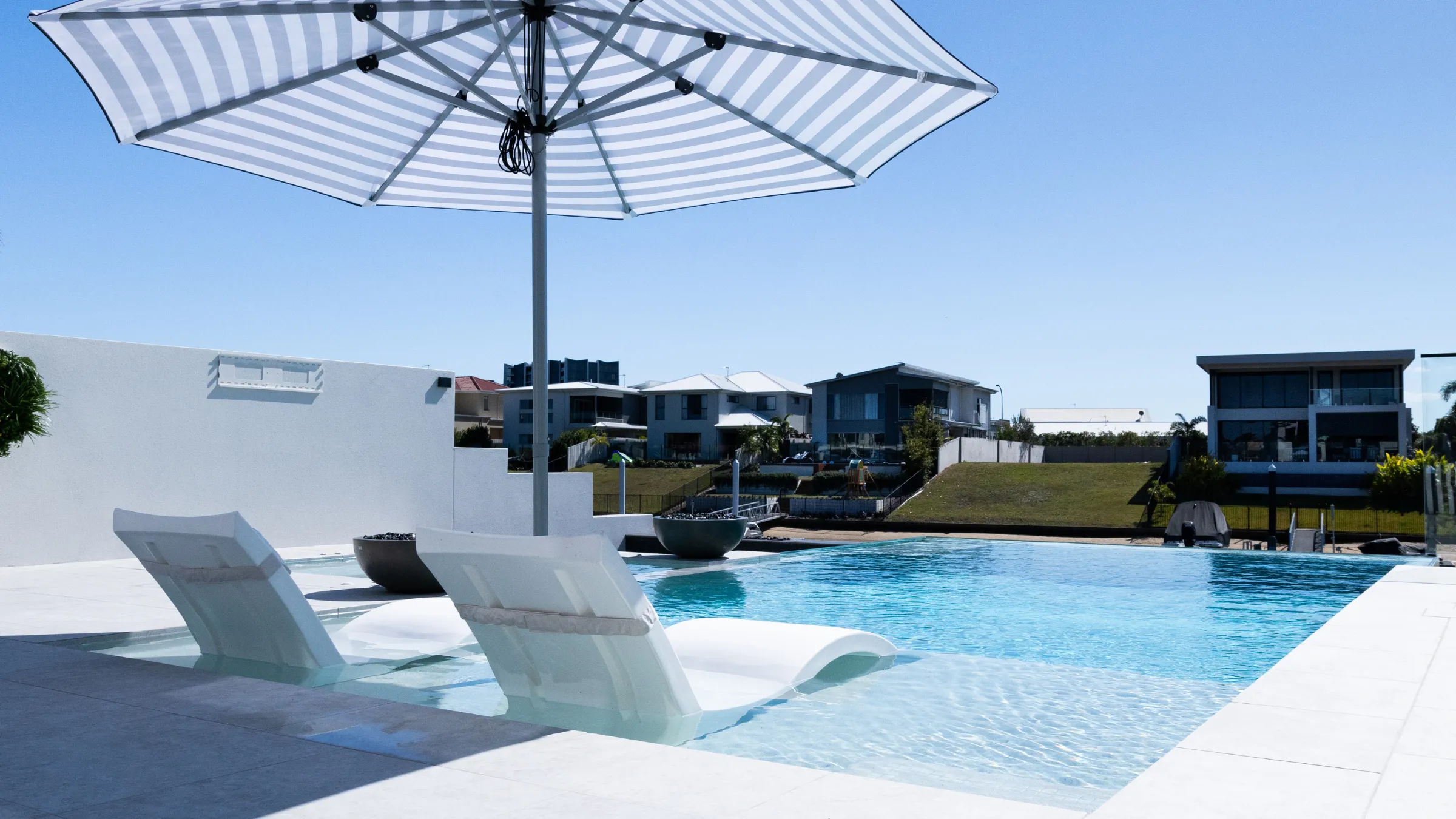What is a saltwater swimming pool?
A saltwater swimming pool is a type of pool that uses salt to generate chlorine instead of traditional pool chemicals. Instead of manually adding chlorine to the pool, the pool's filtration system pumps salt water through a salt cell, which uses electrolysis to break down the salt into chlorine and hydrogen. The chlorine acts as a sanitiser to kill bacteria and other contaminants, while the hydrogen is released into the air.
This method of pool sanitation has become increasingly popular in recent years due to the perceived benefits of softer, gentler water, lower levels of chemicals, and reduced costs.
However, it's important to note that while the term "saltwater pool" can conjure up images of a natural, ocean-like experience, the chlorine levels in a saltwater pool are still higher than in the ocean, and it's still necessary to monitor and adjust the levels to ensure a safe and healthy swimming environment.
Pros of saltwater swimming pools
Cost-effective
Saltwater pools offer an economical alternative to chlorinated pool maintenance, requiring fewer chemicals and less frequent cleaning. Unlike traditional chlorine pools, a saltwater pool uses a process known as electrolysis to eliminate bacteria and other contaminants from the water, meaning fewer trips to the store for costly chemical treatments.
The initial cost of installing a saltwater pool may be higher than installing traditional chlorine pools. But long-term operating prices are typically lower for saltwater systems because they do not require regular chemical balancing or shock treatments like their chlorinated counterparts. Every year, chlorine pools can cost $300-$800, whereas saltwater pools may only require around $100-$300 worth of salt.
Plus, salt chlorine generators can often be used interchangeably between different types of pool systems, so you can get more out of your investment if you upgrade systems in the future.
Health benefits
Saltwater systems offer several health benefits, making them an ideal choice for those with allergies or sensitive skin. Because salt has natural antiseptic qualities, it is gentle and hypoallergenic on both skin and eyes. Saltwater pools are also known to maintain higher levels of pH balance and clarity than traditional chlorine-based swimming pools, which can irritate swimmers' eyes and skin. Also, a saltwater system doesn’t contain harsh chemicals, like chlorinated pools, that could cause skin dryness or redness.
Improved water quality
Saltwater pools offer improved water quality compared to traditional chlorine-based swimming pools. Saltwater pools use electrolysis to create chlorine by breaking down pure sodium chloride (salt) in the water, resulting in lower levels of chlorine and fewer impurities than a traditional pool.
This process also eliminates the need for harsh chemicals, allowing for a more natural swimming experience that is better for your skin and eyes. Because salt isn’t as susceptible to UV light or heat as chlorine, salt water pools maintain their clarity even in sunny climates, where chlorinated pools can quickly become murky.
Saltwater is great to swim in
Many people prefer swimming in a saltwater pool more than a traditional chlorine pool. Saltwater is softer and silkier than chlorinated water, eliminating any need to wear protective goggles or nose clips while swimming. Additionally, because there are very few impurities in the water and little to no chlorine smell, saltwater pools provide a much more natural and pleasant swimming experience.
Cons of saltwater pools
Higher initial cost
Saltwater pools have a significantly higher initial cost compared to traditional chlorinated pools. The owner must purchase a salt cell and generator and pay for their installation, which can be costly. The average price of a saltwater chlorination system in Australia is generally around $750-$1000.
Maintenance requirements
Saltwater pools require more frequent and consistent maintenance than a traditional chlorine pool. The salt cell must be regularly cleaned to ensure proper functioning, while the generator needs to be monitored and maintained to prevent breakdowns. At a minimum, it is recommended to clean your saltwater chlorinator twice annually. However, for optimal maintenance, inspecting it every two months is advisable.
Regular testing of the water's pH levels is necessary to maintain a safe swimming environment. Furthermore, pool owners will need to purchase additional supplies of sodium chloride (salt) periodically to ensure the generation of adequate amounts of chlorine.
Water imbalance
Saltwater pools are more susceptible to water chemistry imbalance than traditional chlorine-based pools. This is because salt water does not evaporate as quickly as chlorine, which can increase the water's salinity levels.
The ideal salinity level for most salt systems is typically between 3,000 and 3,800 parts per million (ppm) salt. It should be around 3,200 to 3,600 ppm of salt on average. As a result, regular testing and correction of imbalances are necessary to maintain a safe and healthy swimming environment.
Corrosion and damage
Saltwater pools are more prone to corrosion and damage than traditional pools. This is because saltwater can be highly corrosive and cause rapid destruction of metal fixtures and fittings. To protect against this, it is recommended that pool owners use corrosion-resistant fixtures and equipment to reduce the risk of damage. Additionally, salt water can potentially cause damage to pool equipment such as pumps and filters, so extra caution should be taken when cleaning or replacing such items.
Is a saltwater swimming pool right for you?
If you're considering installing a saltwater swimming pool, there are a few factors to consider before making your final decision.
Budget
Budget is essential in determining if a saltwater pool is right for you. Saltwater pools can cost more than traditional chlorine-based pools due to the need for additional equipment, such as special filters and pumps, however over time, a salt water pool should be cheaper than a chlorine pool.
Maintenance and upkeep preference
Secondly, consider your maintenance and upkeep preferences when deciding which type of pool to install. While saltwater pools usually require fewer chemical treatments than chlorine-based pools, they require regular testing and top-ups of salt.
Importance of researching and consulting with professionals
It's essential to explore the different types of saltwater pools available and consult with professional contractors in pool installation before making your final decision. Professional pool builders can provide advice and recommendations based on your specific needs and budget.
Conclusion
Saltwater pools can be a great alternative to traditional chlorine-based pools for those looking to invest in a more skin-friendly swimming environment. However, it is vital to consider the cost, maintenance requirements and potential issues associated with saltwater pools before making your choice. With proper research and expert advice, you'll be able to find the pool that best fits your needs and budget.
Tony has been self-employed since the age of 17 and has always been passionate about delivering amazing customer experiences that fuel business growth and profitability. This passion was cultivated early in his career when only three years after starting the first riversurfing business on the Zambezi River in Africa, it was awarded the world’s best adventure activity!
Tony has since applied his extensive sales, marketing and technological expertise to help some of the world’s most recognisable brands including Mercedes Benz, Chanel, Porsche, Jeep, VW, BMW, Swarovski, Land Rover, Lend Lease, Pandora and Country Road.
“I’ve always been a great believer in delivering a win/win for all parties, so my aim for establishing Poolz is to help pool industry professionals grow their business by reducing the many obstacles impacting the overall customer experience for homeowners.”
Tony’s last two businesses, a digital agency and a software development company, were both highly innovative in their approach and singularly focused on gaining the deepest understanding of their client’s businesses and delivering world-class, profit generating solutions to help them grow and succeed.















